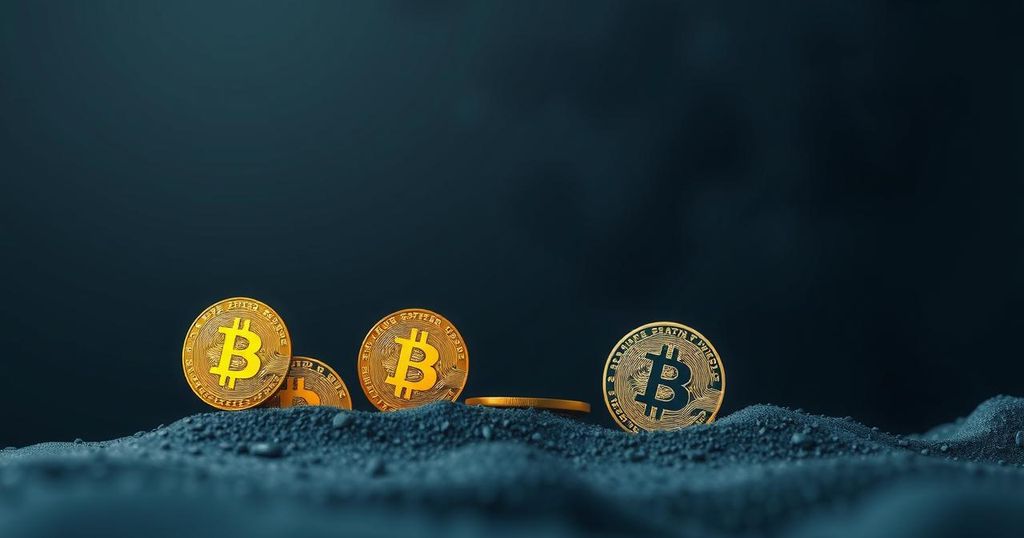Profitability Crisis: Bitcoin Mining Costs Surge Amidst Dipping Returns
Bitcoin mining is becoming less profitable, with costs now often exceeding Bitcoin’s value. Large mines spend over $82,000 per coin, with smaller operations facing costs over $137,000. Rising electricity prices, trade tariffs, and reduced mining rewards contribute to this issue. This profitability crisis deepens wealth inequality in Bitcoin, as 90% of BTC is held by the top 1% of wallet addresses.
Bitcoin mining, once seen as a foolproof way to earn cryptocurrency, is losing its appeal amid rising operational costs. Following a recent dip tied to stock market fluctuations, Bitcoin’s value has climbed again, yet mining it has become increasingly unprofitable. Recent data from CoinShares reveals that the expenses related to electricity and computational resources often surpass the coin’s market value.
Digging into the numbers, large mining operations now spend upwards of $82,000 to mine a single Bitcoin, which, while currently valued around $95,000, leaves them with razor-thin profit margins. Just last quarter, the cost stood at about $56,000, marking a staggering 47% increase in just a few months. This sharp rise highlights the diminishing profitability that’s creeping across the industry.
Most individuals aren’t industrial miners, and for smaller scale operations in the US, the costs run significantly higher—estimated at around $137,000 to mine a single Bitcoin. Things look even bleaker in Germany, where miners are facing costs closer to $200,000 per coin. These figures starkly show that current mining expenses overshadow any potential returns.
The reasons behind this unsustainable mining equation are multifaceted. One prominent factor is the escalating price of electricity, driven by inflation, trade tariffs from the previous US administration, and a surge in energy demand from technology sectors like artificial intelligence. Additionally, tariffs have increased the cost of mining equipment, further squeezing profitability.
Moreover, the recent halving event, which reduced mining rewards, curtails the supply of new coins. This event is intended to control inflation in Bitcoin’s economy, but it’s also making mining less enticing as expenses rise while rewards dwindle.
For most, the decline in mining’s profitability won’t be missed. Yet, it continues to intensify the disparity within the Bitcoin ecosystem, where wealth accumulation is pronounced. Bitcoin was initially hailed as a potentially equalising currency, but current data suggests otherwise. Reports from BitInfoCharts indicate that the top 1% of wallet addresses now hold over 90% of all circulating Bitcoin. This growing divide indicates that, rather than level the playing field, Bitcoin mining may actually be reinforcing wealth concentration within a small elite group. The rich seem to be getting richer, while many miners struggle to make a return on their investments.




Post Comment